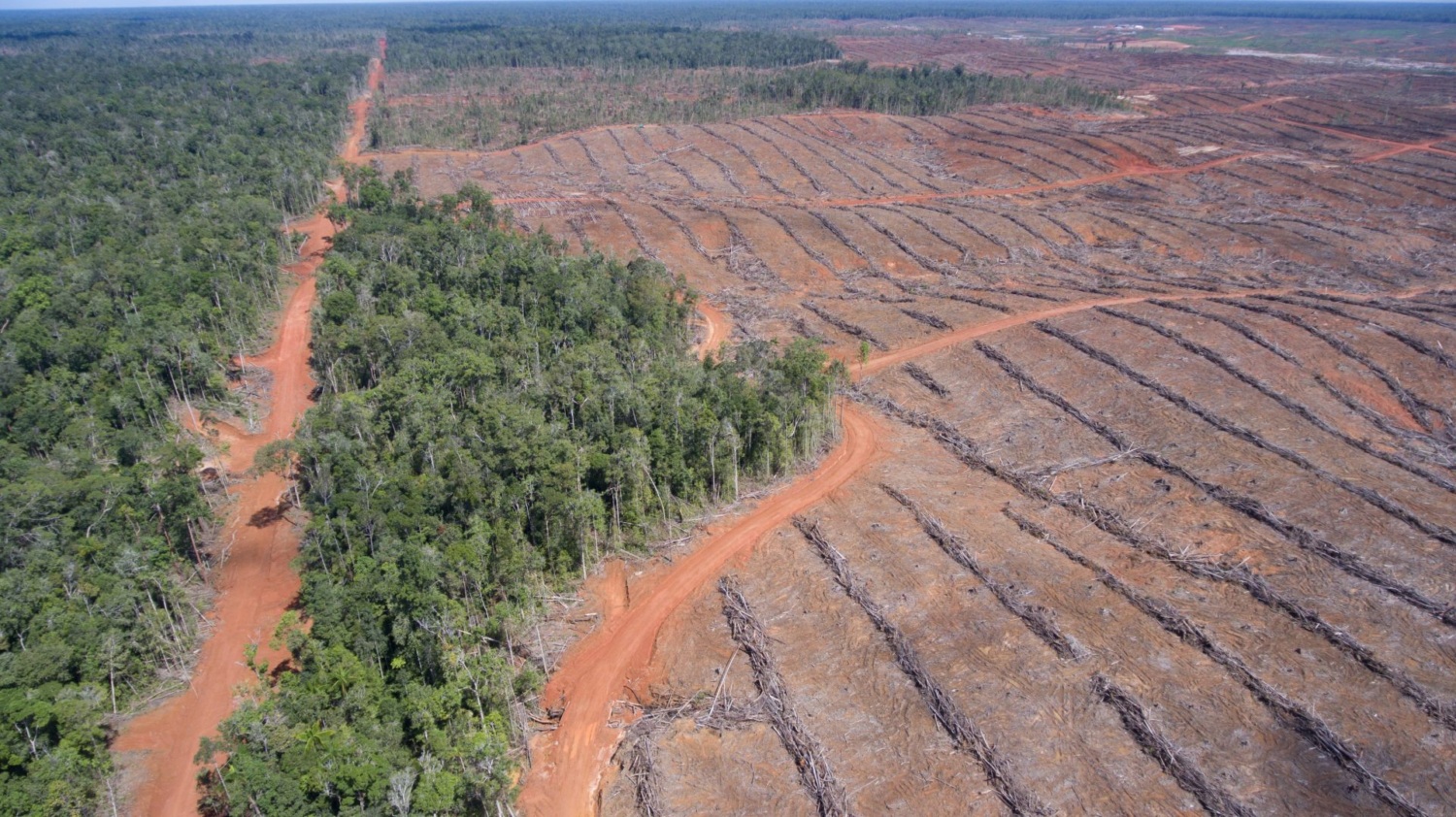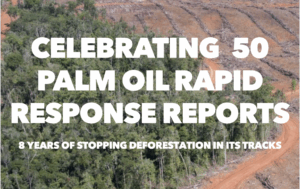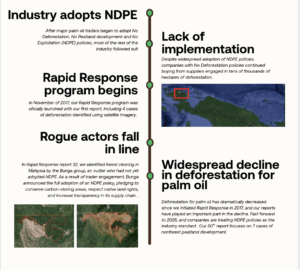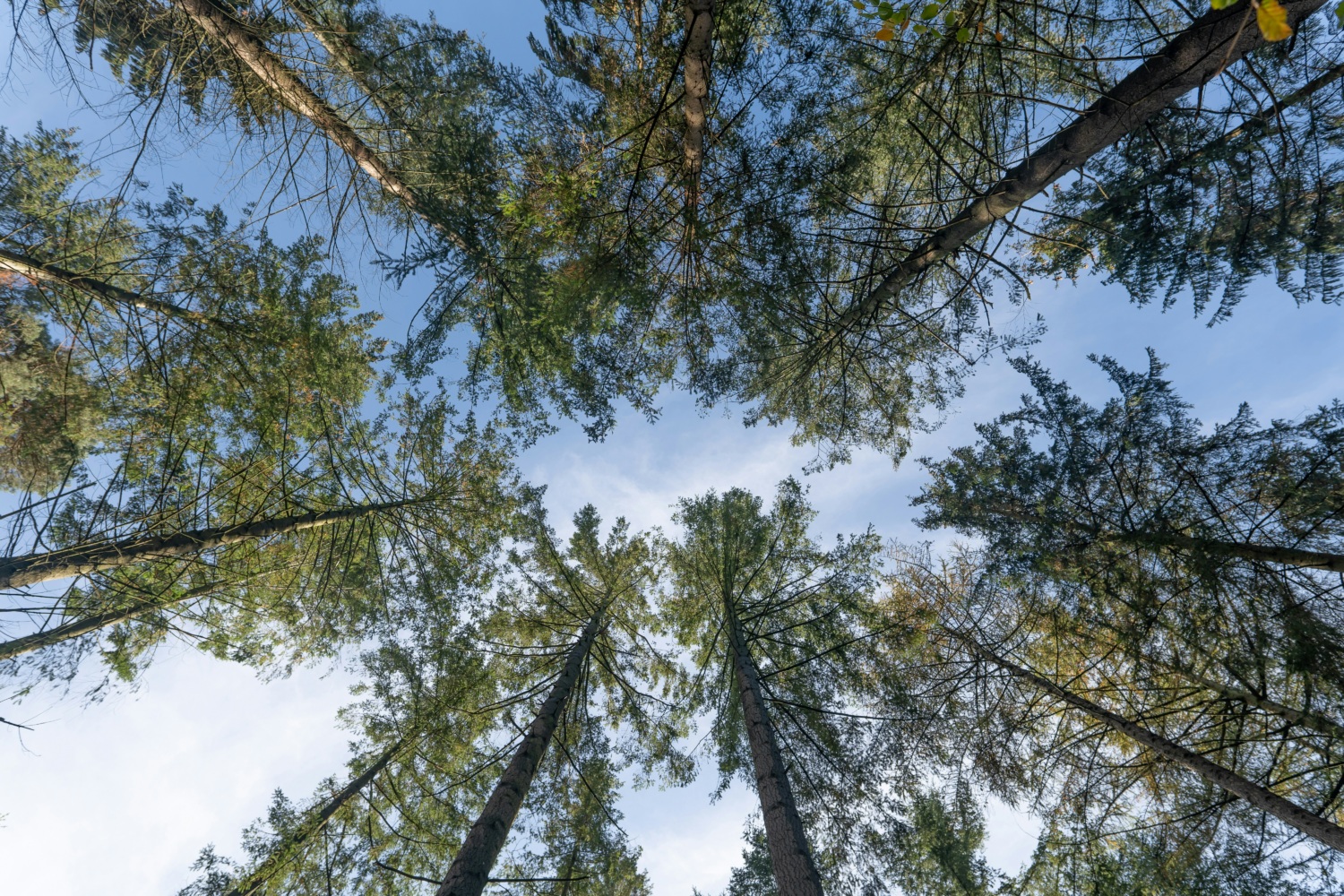
Celebrating our 50th Palm Oil Rapid Response Report
PALM OIL RAPID RESPONSE REPORT 50
Mighty Earth has just published its 50th Rapid Response palm oil report, the latest in an 8-year stretch of consistent monitoring and reporting of concessions linked to the palm oil sector in Southeast Asia. To celebrate our 50th report, we’re talking to Phil Aikman, a Campaign Director at Mighty Earth and long-time commodity deforestation expert, about how Rapid Response came to be – and where it’s going next.

ABOUT RAPID RESPONSE
In 2017, Mighty Earth launched Rapid Response to identify new deforestation or peatland development across more than 3,000 oil palm concessions, covering approximately 21 million hectares of land.
Initially supported by MapHubs, AidEnvironment and PlanetPlanet Inc., Rapid Response monitoring started to hold the palm oil industry accountable for compliance with their No Deforestation, No Peatland development, and No Exploitation (NDPE) policies. This has contributed to a significant decrease in deforestation and peatland development for oil palm plantations and the adoption of NDPE policies by plantation groups.
Using high-resolution, high-frequency satellite imagery from Planet to detect even small changes in forest or peatland cover, Rapid Response allows Mighty Earth’s team to catch instances of deforestation in near-real time and file alerts with more than two dozen of the largest palm oil companies. These reports, delivered promptly and accurately, spur these global traders to intervene – often in as little as 48 hours – by suspending the suppliers found to be engaged in deforestation. By catching clearing at the 10-hectare level, we are able to work with companies to stop it before it becomes hundreds or thousands of hectares.
INTERVIEW WITH PHIL
What was the palm oil industry like before companies adopted NDPE policies?
Rapid Response was initiated partly because the industry had adopted policies but were slow to implement them across their supply chains. Mighty Earth now engages with over 45 companies with NDPE policies, including corporate brands and downstream actors. Our Rapid Response cases influenced them to investigate cases and adopt NDPE policies, in addition to adopting grievance processes that guide investigations and action on cases.
Some companies were dragging their heels on adopting and implementing NDPE policies. Some companies understood that their supply chains were highly varied and had a handle on traceability, but others didn’t know where they were sourcing from, or what plantation groups were involved in deforestation.
How has Rapid Response changed over time?
When we first started, plantation groups were still doing large-scale clearing and we were dealing with multiple cases at a time with different supply chains. Now, there’s fewer large-scale cases that are linked to NDPE supply chains. Groups doing the clearing are either rogue actors or doing clearing for other commodities, like plantation timber or gold, for example.
Companies involved in palm oil supply chains need to adopt a cross-commodity approach so that companies are acting on cases for deforestation for other commodities, not just for oil palm.
In some cases, companies are clearing land for oil palm but don’t own a mill, so sometimes we need to investigate fresh fruit bunch (FFB) sales and track 3rd party supply chains to other mills that are receiving the fruit. For example, in a recent case involving the First Borneo group, an investigation of FFB sales led to suspension of the company involved in deforestation. We are adapting to the reality of different systems in place and being a ‘watchdog’ is still necessary because cases aren’t always acted on.
More and more companies with palm oil supply chains have hired the services of independent organizations such as Earthqualizer Foundation, Earthworm Foundation, MapHubs, Nusantara Atlas or Satelligence to help them achieve their deforestation-free commitments.
At the end of the day deforestation monitoring is all about access to reliable data, be it concession boundaries, group ownership structures, FFB sales, export trade data, or any other supply chain data.

Why is it important to prove group ownership for Rapid Response cases?
We map out group ownership and control because NDPE policies were originally developed to apply across all corporate group operations. A few Rapid Response cases have come up over the years that have complicated group ownership structures.
Some groups will hide their true ownership in offshore holding companies, which creates a challenge to implementing NDPE policies at the Group-level.
What are some notable successes of the Rapid Response Program?
Mighty Earth has established a track record of documenting cases of deforestation and peatland development, publishing reports on a regular basis and sending them to companies to file grievances on these cases. Companies have come to expect these reports and act on them accordingly.
Deforestation for palm oil, pulp and paper, has decreased since we initiated Rapid Response in 2017, and our reports have played an important part in the decline. Fast forward to 2025, and companies are treating NDPE policies as the industry standard.
Today, due to decrease in deforestation and peatland development, our system identifies fewer and often smaller cases, but we are still closely monitoring instances of deforestation or peatland development and non-compliance with NDPE commitments. Mighty Earth has also expanded Rapid Response to other climate-critical tropical forests around the world and other commodity sectors that are major drivers of deforestation, including cocoa, soy, and beef.
What is the future of Rapid Response?
The methodology we’ve been using works, though it’s often harder to spot smaller cases using available deforestation alert systems. Peatland development in areas without forest, for example, doesn’t get picked up well by current alert systems, like GLAD or RADD. Plantation groups are still developing land to grow oil palm so we’re adapting our methodology to become more forensic in how we search for cases while keeping an eye on groups that have NDPE policies, but aren’t monitoring, filing grievances, or auditing their development by doing HCS or HCV assessments, for example.
Mighty Earth is working to expand our corporate engagement and increase the number of companies we engage with on Rapid Response as more and more companies adopt NDPE policies. We still have room to learn, especially with improvements in technology over the years. Access to services like Planet has allowed us to see daily imagery or task satellites to take high resolution imagery of given areas. This makes it possible to interpret developments quickly and provide evidence that’s less easy for companies to challenge.
READ THE FULL PALM OIL RAPID RESPONSE REPORT 50 HERE


